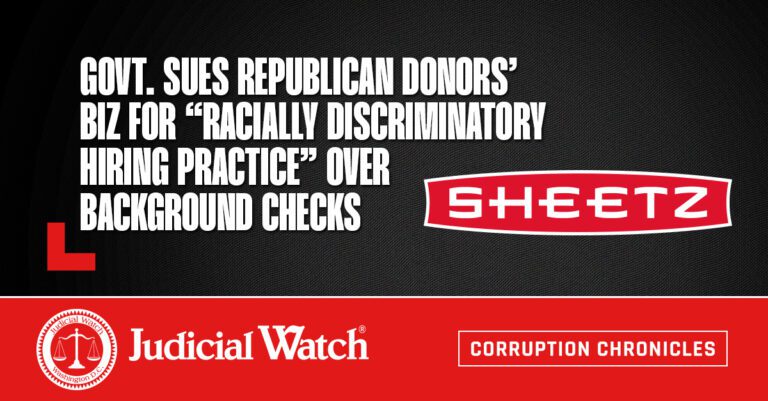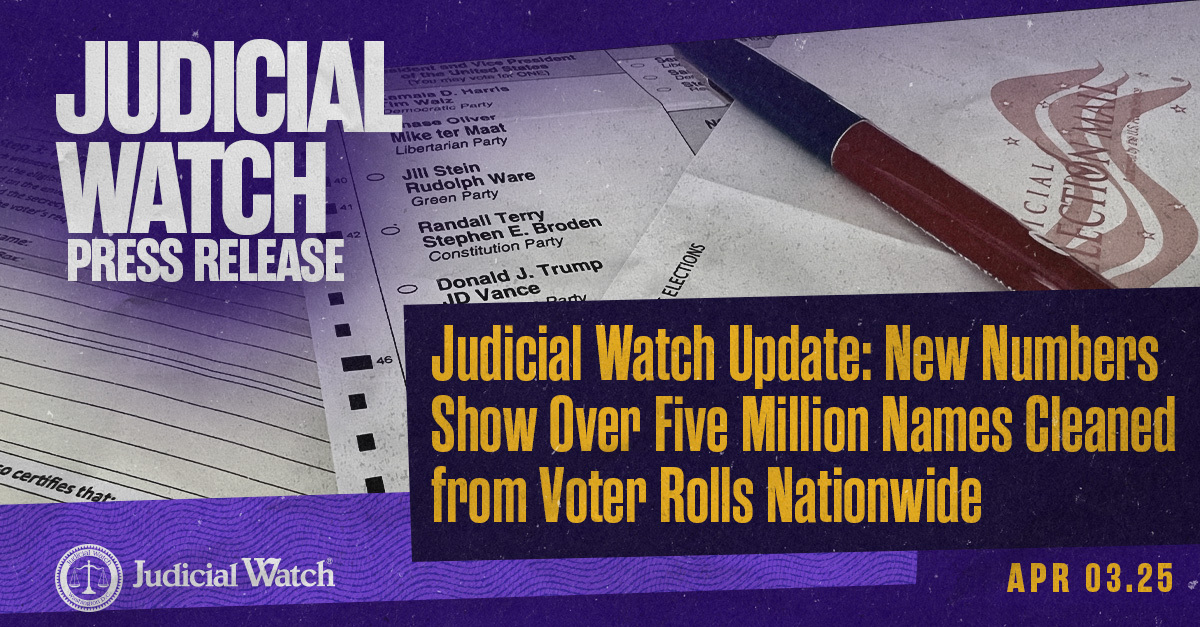
Govt. Sues Republican Donors’ Biz for “Racially Discriminatory Hiring Practice” over Background Checks

The Biden administration appears to be using a federal agency to go after a family that has donated significantly to Republicans by suing its company for “racially discriminatory hiring practice” over background checks. The business, Sheetz Inc., is a chain of convenience stores and the Sheetz family has long supported Republicans in Pennsylvania and the Midwest, according to records obtained by Judicial Watch. In the last few years, the Sheetz’s have donated hundreds of thousands of dollars to Republican causes and political candidates, including presidential candidate Mitt Romney, Pennsylvania Senate candidate Dave McCormick and the National Republican Congressional Committee. The most recent donation of $24,500 by Chairman Steve Sheetz was made a few months ago to McCormick, a Westpoint graduate and combat veteran endorsed by former President Donald Trump.
Now the Equal Employment Opportunity Commission (EEOC), which is charged with enforcing the nation’s workplace discrimination laws, is suing Sheetz Inc. for “racially discriminatory hiring practice” over background checks. The agency charges that the company’s criminal history screening causes discriminatory impact against black, native American and other workers. In the lawsuit the Biden administration writes that Sheetz has maintained a longstanding practice of screening all job applicants for records of criminal conviction and then denying them employment based on those records. The company operates stores in over 600 locations throughout six states. The EEOC charges that the background checks disproportionately screened out black, native American/Alaska native and multiracial applicants. “Sheetz’s companywide hiring practices violated provisions of Title VII that prohibit disparate impact discrimination,” according to the agency.
In its complaint, which was filed in Maryland, the EEOC does not allege that Sheetz was motivated by race when making hiring decisions. The criminal screenings nevertheless resulted in racial discrimination, which violates federal law prohibiting facially neutral employment practices that cause a discriminatory impact because of race when those practices are not job-related and consistent with business necessity or where alternative practices with less discriminatory impact are available. “Federal law mandates that employment practices causing a disparate impact because of race or other protected classifications must be shown by the employer to be necessary to ensure the safe and efficient performance of the particular jobs at issue,” said EEOC Regional Attorney Debra M. Lawrence. “Even when such necessity is proven, the practice remains unlawful if there is an alternative practice available that is comparably effective in achieving the employer’s goals but causes less discriminatory effect.” An EEOC director stresses the agency’s commitment to reintegrating individuals with criminal records into society by ensuring they have fair access to employment and other essential services.
Last fall the EEOC directed government agencies to “widely publicize” they are “hiring persons with criminal conduct issues in their background checks” as part of a Biden executive order requiring diversity, equity and inclusion in the federal workforce by, among other things expanding employment opportunities for convicted individuals. Job applicants with criminal records are rarely eliminated from government jobs since the president issued the directive, the EEOC conceded at the time, but agency leaders believe more must be done to accommodate them and, when conducting background checks, the agency says employers should take a holistic approach with consideration for mitigating circumstances. In two reports issued last year, the EEOC explained that before Biden’s order an agency task force charged with identifying vulnerable workers and finding ways to better serve them classified “formerly incarcerated persons as one category of vulnerable workers due to the challenges they face in securing employment after their incarceration.” Years ago, the agency also made background checks related to arrest and conviction records among its “national substantive area priorities because African Americans and Latinos are disproportionately incarcerated.” Now the taxpayer-funded federal agency is going after businesses that screen employees with background checks, spending public resources to sue them.
















